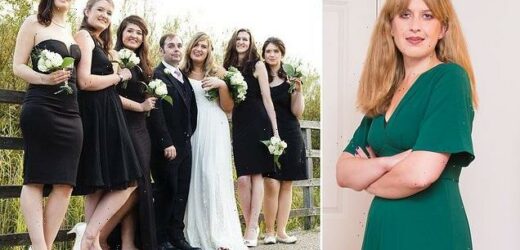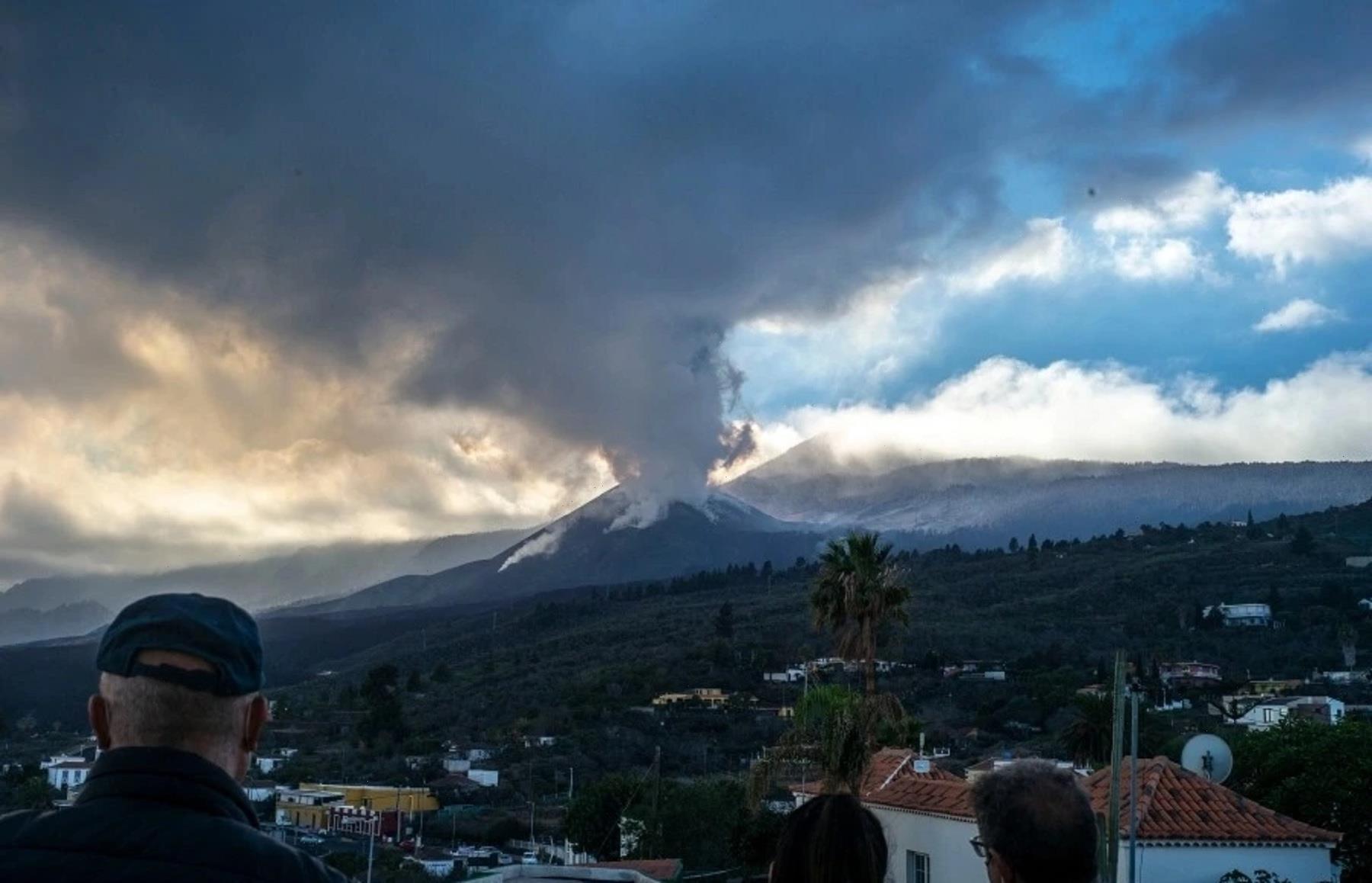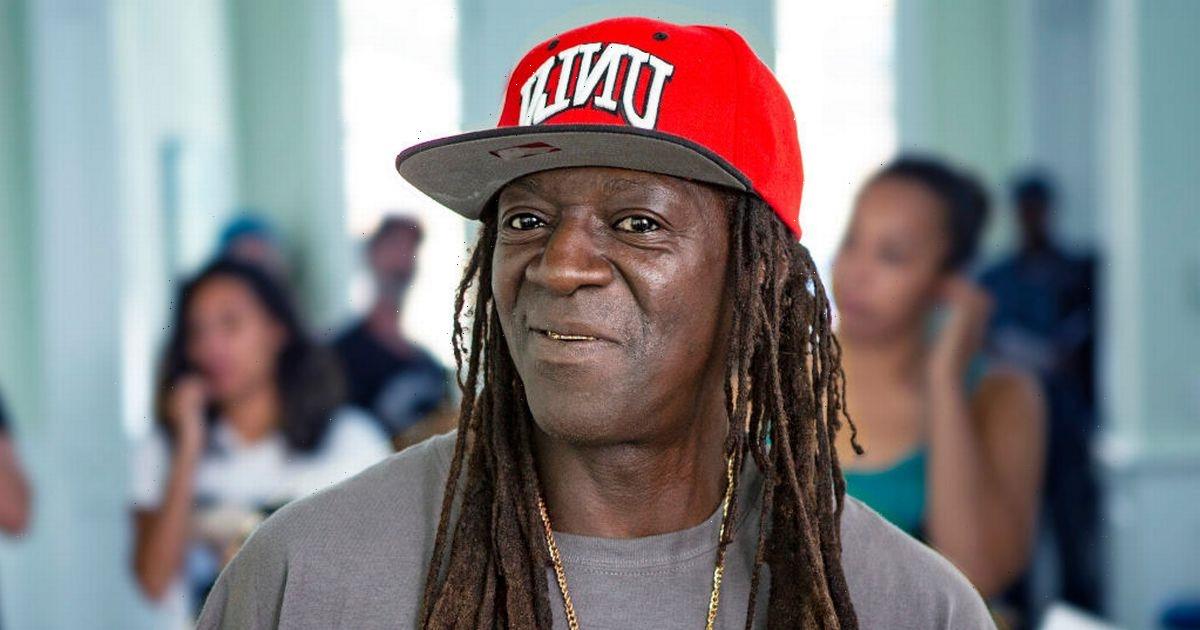Why is it so difficult for a married woman like me to admit I don’t want children and that I’m complete without kids, asks novelist DAISY BUCHANAN
Growing up following the adventures of The Waltons, the Bennet sisters, the March girls — and my own mad gaggle of siblings — I’ve always loved big families. The eldest of six girls, there were moments as a child when it felt as though there was always another baby on the way.
Sometimes my sisters and I would try to predict our own futures. ‘Each of us should have six children and they’ll all be cousins, and best friends!’ we’d say. Even if I didn’t have six children, I assumed that motherhood would definitely be a part of my future.
One distant day, when I was really old, around 27 or 28, I’d blink and discover I’d magically become a married homeowner with at least two children. After all, this is what happened to every other grown woman I knew.
But by the time I turned 25, single, between jobs and living in a tiny flat, this was starting to look unlikely — and I was beginning to panic.
It felt as if my life was stopping before I’d started and it broke my heart. My future didn’t look how I assumed it would and it scared me.
Yet now 36, happily married and having bought our first home, children seem no closer. In fact, my husband and I have decided we don’t want them. Even as I write that sentence, I hesitate. There’s a lot of relief, but also a lot of sadness. I feel defensive. I still feel scared.
Made up her mind: Daisy Buchanan pictured today
We haven’t come to this decision because we can’t have children or because, as some might assume, that we’ve tried and failed. We have just, both independently and jointly, realised that we don’t need a child for our family to feel complete. We don’t need a child to be happy. And, frankly, we’re nervous about the kind of world we’d be bringing a baby into.
I feel anxious to point out, too, that I’m not a child-hating witch — there are many adored children in my life and it’s a privilege to know them. But despite my feelings — which my husband shares — I still can’t escape the sensation of loneliness.
Because while motherhood automatically sees you invited into endless communities, I’ve yet to find an equivalent for women who choose to be child-free. I love to see my friends celebrating the joyful, funny and strange parts of motherhood online. But I wish there was a way for people like me to find our tribe, too.
In theory, it shouldn’t be that difficult. Though the assumption is that young married couples always plan to have children, my husband and I are far from alone in deciding at an early stage that it wasn’t the path for us.
A U.S. study recently found that 44 per cent of childless adults say they will not go on to have children. I admire their bravery. Because admitting that I, a woman in my 30s, doesn’t want children still feels like a huge taboo.
A woman with children is loving, warm, altruistic. A woman who does not want to have children is selfish, lonely — and more than a little tragic. We’re either represented as hapless Bridget Jones types destined to die alone eaten by Alsatians, or villains in the mould of Lady Macbeth, Cruella de Vil, Annie’s Miss Hannigan.
Pictured: Daisy on her wedding day alongside her five sisters
In fact, as a society, at times it can seem as though we’re obsessed with a woman’s procreation, or lack of it.
Just look at Jennifer Aniston, dubbed ‘Sad Jen’ for her lack of offspring. Last week, the 52-year-old told how the years of speculation had infuriated her, explaining: ‘I used to take it all personally — the pregnancy rumours and the whole, “Oh, she chose career over kids” assumption’.
‘It’s like, “You have no clue what’s going on with me personally, medically” . . . they don’t know anything and it was really hurtful.’
So why did I change my mind about having a family?
Strangely it was Jane Austen, who loved stories with happy endings — but was herself unmarried and childless — who planted the first seed.
As a child I longed to be an author — something I’m pleased to say that, with six books of my own, I’ve achieved. Reading her work, I started to wonder how my passion for writing might fit with having a family.
However, even then, I knew I was expected to follow in my mother’s footsteps. When we went to Mass, we were told women were expected to dedicate their lives to their families. You could be a mum — or a nun.
Yet now 36, happily married and having bought our first home, children seem no closer. In fact, my husband and I have decided we don’t want them. Even as I write that sentence, I hesitate (stock image)
At the beginning of my 20s, I was filled with optimism. I found a sensible job and a sensible boyfriend, hoping I was on the path towards security, a family and a future.
Happiness was my only goal. But I didn’t expect the journey would make me feel so desperately sad. I craved fun and creativity, but as I tried to do the ‘right’ thing there was no room for either. I became depressed.
Already, many of my friends were starting to make progress. Every time I looked at Facebook I saw an engagement announcement, a new house or a baby scan. It was overwhelming — and confusing. I didn’t think I was ready just yet, but hated the fact I was ‘falling behind’.
My boyfriend, an insurance analyst, was doing well at work and we talked about marriage and babies ‘in a year or two’. But there was always an assumption he’d focus on his job and I’d look after the family.
Meanwhile, my parents dropped hints about how much they were looking forward to being grandparents. I felt trapped.
Then I was fired from my ‘sensible’ job and my sensible boyfriend ended things soon afterwards. Frankly, it was a relief. It made me realise that though I’d tried to think of children as a prize, I’d been heading towards a future that frightened me.
So I let myself follow my passions and interned for a magazine.
Now my life was filled with fun and creativity — but at 25 I was broke. It was a struggle to pay rent, on a tiny, damp room in the depths of South London. I couldn’t envisage a future where I could take care of a child.
In desperate moments, I daydreamed about what would make me happy. I fantasised about living in my own flat, with a partner I loved, not constantly worrying about my overdraft. Occasionally I played a game with myself and pictured a house filled with children. It didn’t feel as good as my other daydreams.
Being honest with myself was scary, but I was starting to realise I longed for independence — not a family.
But at parties aunts would ‘remind’ me about my biological clock. My friends were talking about fertility worries. Some were desperate to have children, no matter how long it took or how difficult it got.
Strangely, a couple of bad boyfriends helped me to make some wise decisions. In the middle of my 20s, I got together with an old childhood friend. I knew our parents, who were still close, would be thrilled if we had kids. I believed that with him, I might be able to make a family work.
A woman with children is loving, warm, altruistic. A woman who does not want to have children is selfish, lonely — and more than a little tragic (stock image)
The reality was different. He would scream at me, criticise me, abandon me at parties. There was no future with him, certainly not one that was secure enough to raise children in.
Then I fell briefly, and miserably, in love with an older divorcee. He already had children and I allowed myself to wonder if I could be happy as a stepmother. But on some level I knew I wouldn’t want to be a replacement mother. ‘Maybe,’ I’d whisper to myself, ‘not anyone’s mother’.
When I dreamt of what my future might be like with him, rather than children I pictured myself writing.
It came as a surprise, but not a painful one. For the first time, I felt a sense of peace. I’d been scrambling to catch up to my peers, trying to run towards the future my family wanted for me, but I realised my biggest fear wasn’t not having children — it was the ways in which I might be judged for not having children.
Just after I turned 27, I met the man I would marry. Life started to fall into place. If we were going to have children, this would be the time.
The pressure from friends and family was mounting. Because I seemed settled for the first time, it was widely assumed my partner and I would be starting a family soon. I remember my friend Laura teasing me: ‘Is he the one? You must have babies!’
My partner and I talked about it openly. Neither of us was entirely opposed to the idea — but neither of us wanted children enough.
I believe motherhood ought to be available to everyone who desires it. But I also believe we need to tell women that if they don’t desire it, that’s just fine too (stock image)
We loved our lives together and felt we had everything we needed to be happy. We had friends with young children and they seemed stressed, and exhausted. A future without parenthood didn’t break our hearts.
We had some friends who, like us, weren’t sure. When we discussed it with them, we had similar concerns. Would we manage to buy a place to live? What would happen if we found ourselves out of work? And what sort of world would our children end up in? At one dinner party, upon confessing our thinking, I was amazed at the response. ‘Thank GOODNESS,’ cried my old colleague, Ali, who had just got engaged to her boyfriend Pete. ‘I feel it’s evil to say I don’t want kids, but us too!’
However, we still weren’t ready to fully ‘out’ ourselves. If relatives asked questions, we’d make vague noises and say ‘maybe soon!’
Around then, two of my sisters had their first babies, within a month of each other. I was overjoyed, but experienced some grief. Subconsciously, I thought that when my sisters became mothers, I’d change my mind. Instead, I felt more sure of myself. Holding my niece and nephew, I realised I’d never hold my own baby.
A small part of me still wants to want children, because of my parents. I feel selfish denying them this. But I know it would be more selfish to have a child just because I worry what people will think.
Of course, there are infinite reasons people don’t have children. In the UK, one in six couples have difficulty conceiving. Having watched several friends struggling through IVF, I know that for many women not being able to have children is a real tragedy and more should be done to help them.
However, I think we need to change our attitudes, too. If we change the way we consider women without children, we create a world where more women are allowed to feel that motherhood isn’t their only destiny. We’re not villains, and we’re not failures. For now, the slowly increasing number of willingly child-free voices I hear online still tend to be sad, serious, angry and defensive. There is a part of me that feels sad and angry, too.
But there is so much joy in my life. Every single day, I feel grateful for my happy marriage, for the thrill I find in my work and for the privilege of knowing my nieces and nephews. And if one day they don’t want to have children of their own, I hope I can be a role model.
I’m grateful that things didn’t work out with the sensible job and the sensible boyfriend. The wrong turns and false starts that caused me so much despair gave me time to work out what I really wanted — and what I didn’t.
As a child, I watched women talking about ‘having it all’: the house, the career, the family. It was hard then and it can seem even more impossible now. I don’t think I’ll ever ‘have it all’, but I have everything I need.
I believe motherhood ought to be available to everyone who desires it. But I also believe we need to tell women that if they don’t desire it, that’s just fine too.
Source: Read Full Article







